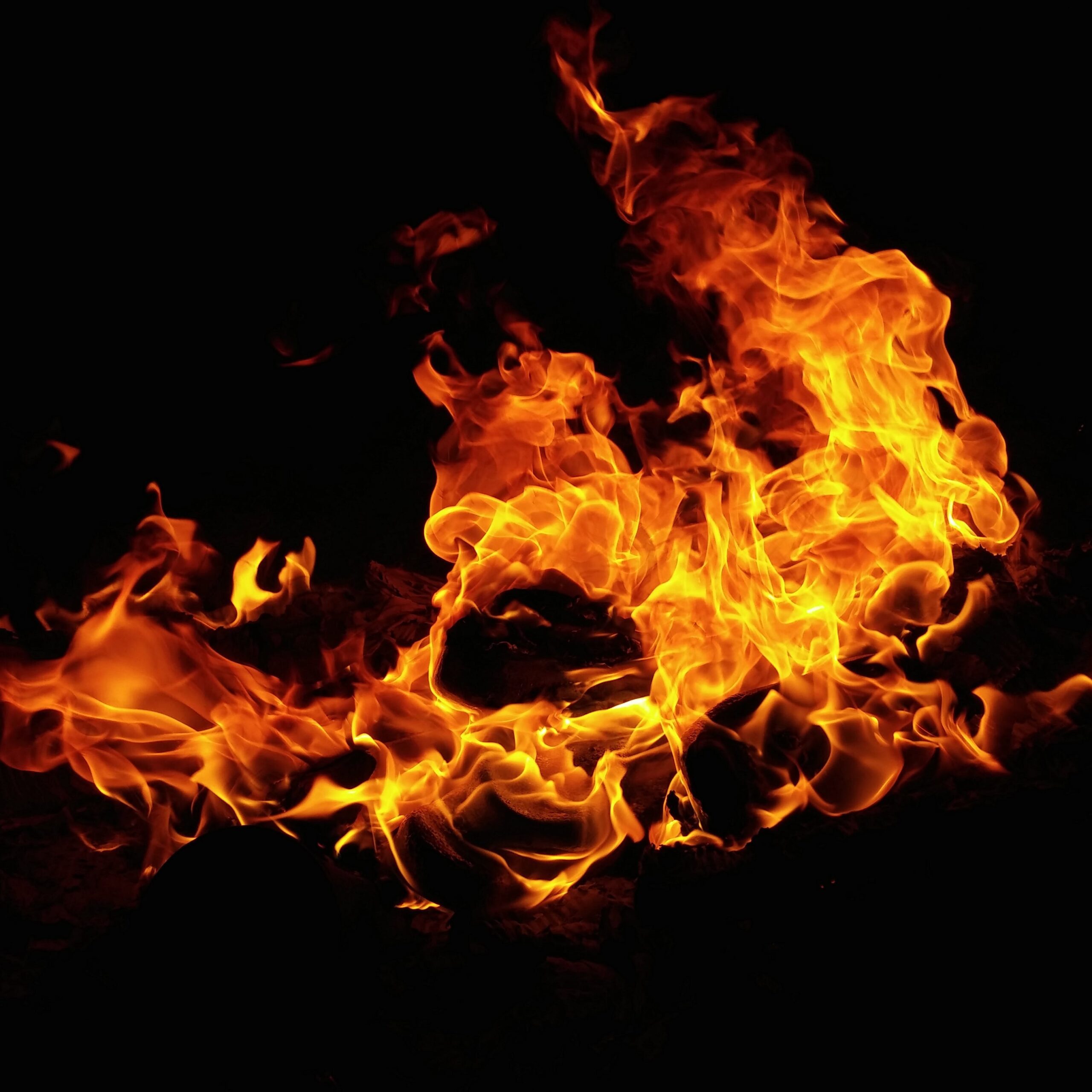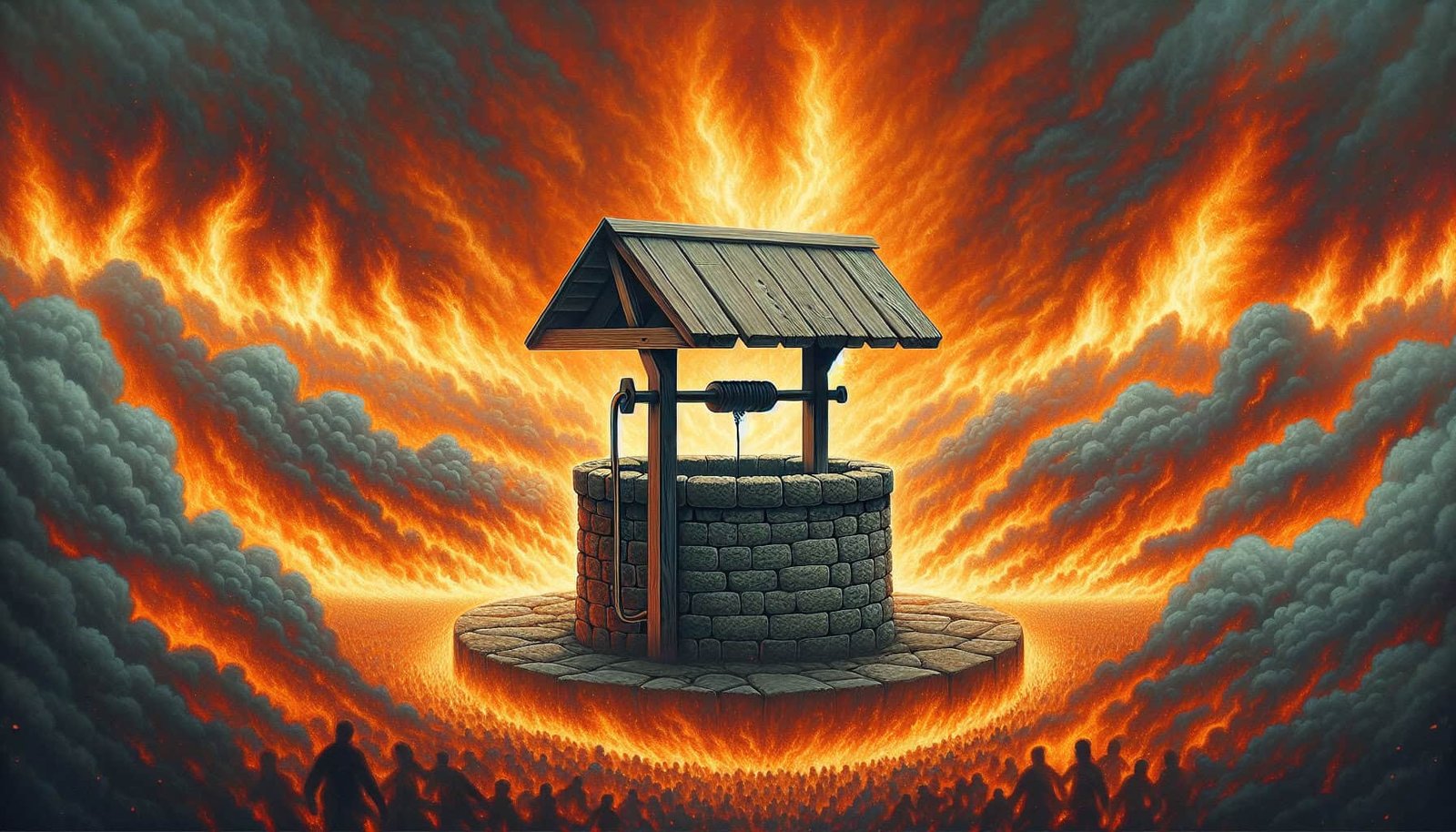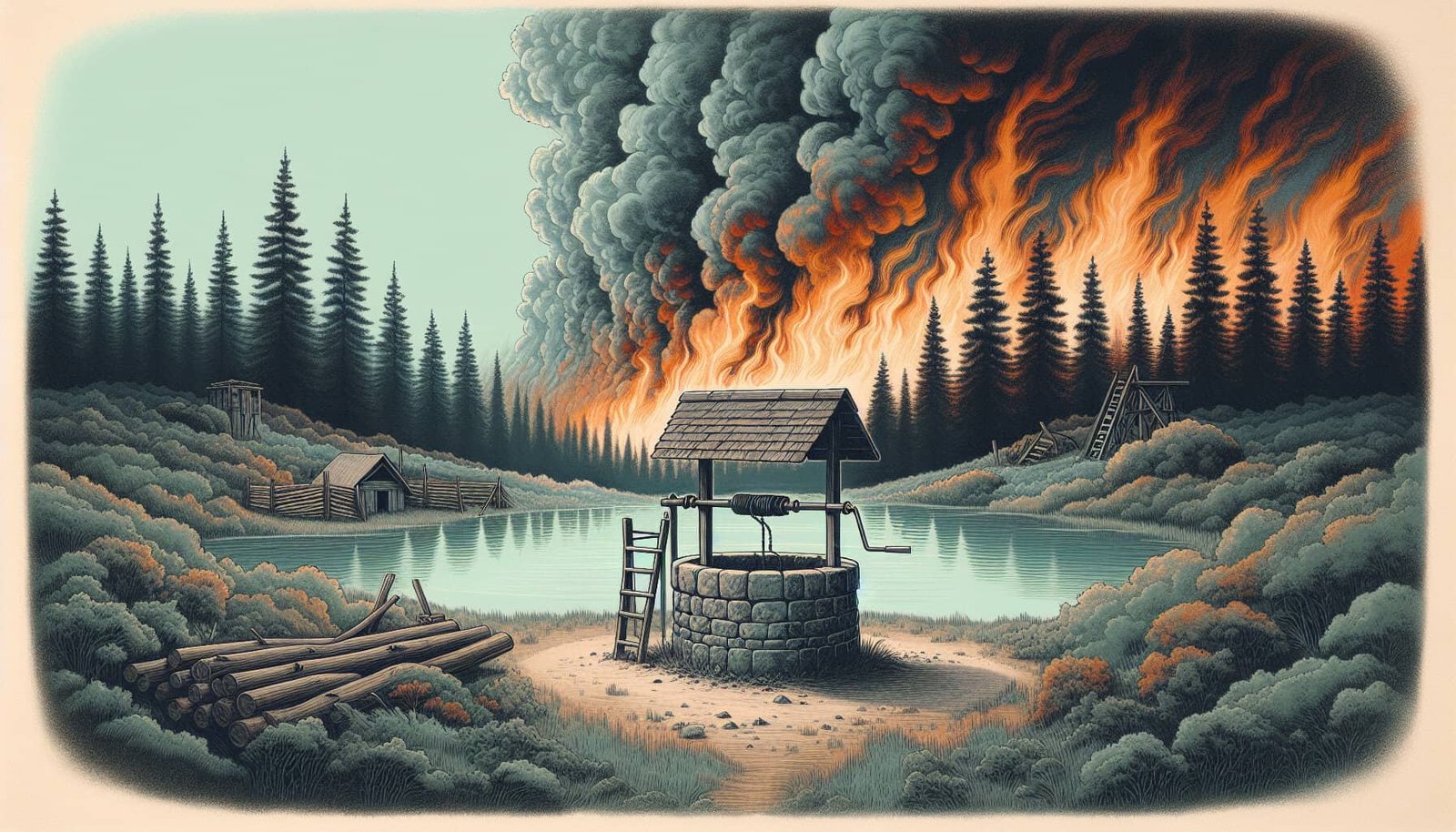If you’re a well owner living in an area prone to frequent wildfires, you may find yourself wondering about the resources available to support you during these challenging times. From finding information on fire prevention techniques to understanding the best practices for protecting your well from smoke and ash, there are numerous resources out there specifically designed to assist well owners in fire-prone areas. In this article, we’ll explore some helpful tips and strategies to help you easily locate and access these valuable resources, ensuring the safety and security of your well during wildfire seasons. So, whether you’re facing a current wildfire or simply want to be prepared for potential future incidents, read on to discover the wealth of resources waiting to assist you.
Government Agencies
Local Fire Departments
Local fire departments are a vital resource for well owners in areas with frequent wildfires. These agencies are responsible for fire suppression, prevention, and education within their jurisdiction. They can provide valuable information on wildfire risks, prevention measures, and evacuation plans. Firefighters are trained in assessing and mitigating wildfire risks, and they can help well owners understand the specific risks their property may face. Additionally, local fire departments often collaborate with other agencies and organizations to ensure the safety of well owners during wildfire incidents.
State Environmental Agencies
State environmental agencies play a crucial role in protecting water resources, including wells, from potential pollutants and contaminants. These agencies monitor and regulate activities that may impact water quality, such as industrial operations, construction projects, and land development. Well owners can contact their state environmental agency to access information on water quality standards, testing requirements, and potential sources of contamination. These agencies also provide guidance on well construction and maintenance to ensure the long-term safety of drinking water supplies.
Department of Natural Resources
The Department of Natural Resources (DNR) is another important government agency for well owners in wildfire-prone areas. The DNR is responsible for managing natural resources, including forests, parks, and wildlife habitats. Well owners can reach out to their local DNR office to obtain information on wildfire risk assessments, forest management practices, and regulations pertaining to fire prevention and control. The DNR often collaborates with fire agencies and other organizations to provide educational resources and support for well owners in fire-prone regions.
County or City Health Departments
County or city health departments are valuable resources for well owners concerned about water quality after a wildfire. These departments oversee public health and safety, including the monitoring of drinking water supplies. Well owners can contact their local health department to inquire about water quality testing services, potential contaminants associated with wildfires, and steps to take in case of contamination. These departments may also provide guidance on emergency water treatment options and resources for addressing post-wildfire water contamination.
Online Tools and Databases
National Well Database
The National Well Database is a comprehensive online resource for well owners, providing access to information about wells across the country. Well owners can search for specific well locations, view well construction details, and identify nearby sources of potential contamination. The National Well Database can be a valuable tool for well owners in areas prone to wildfires, as it can help them assess potential risks and locate other well owners facing similar challenges. Accessing this database provides valuable insights into well construction standards, best practices, and potential issues that may arise in wildfire-prone regions.
Well Owner Websites
Various websites cater specifically to well owners, offering a wealth of information on well maintenance, water quality, and emergency preparedness. These platforms often include forums or discussion boards where well owners can connect with each other, share experiences, and seek advice. Well owner websites may also provide resources specific to wildfire-prone areas, such as tips on protecting wells during a fire, dealing with post-fire water contamination, and finding financial assistance for repairs. Well owners can benefit greatly from the information, support, and community found on these websites.
Local Water Quality Testing Facilities
Local water quality testing facilities are essential for well owners to ensure the safety of their drinking water. These facilities offer various tests to assess water quality, including tests for contaminants associated with wildfires, such as ash, soot, and chemical residues. Well owners can contact their local water testing laboratory to inquire about specific tests needed in their area and to schedule water sampling appointments. These facilities provide accurate and reliable results, enabling well owners to make informed decisions regarding water treatment or potential risks to their health and well-being.
Mapping Tools for Wildfire Risk Assessment
Mapping tools designed for wildfire risk assessment assist well owners in understanding the potential hazards they may face. By inputting location-specific data, such as vegetation types, topography, and historical fire patterns, these tools generate customized risk assessments. Well owners can access valuable information, such as the likelihood of a wildfire occurring in their area, the level of severity expected, and recommendations for mitigation measures. Mapping tools for wildfire risk assessment empower well owners to take proactive steps in protecting their properties and water supplies.

Well Owner Associations and Organizations
National Ground Water Association
The National Ground Water Association (NGWA) is a prominent organization advocating for the interests of well owners nationwide. It offers extensive resources, educational materials, and guidance on well construction, maintenance, and water quality. Well owners can join the NGWA to access exclusive publications, participate in webinars and conferences, and connect with a network of experienced professionals. The NGWA also provides valuable insights on addressing wildfire-related challenges, including the impact on water sources, well protection strategies, and available financial assistance programs.
State-specific Well Owner Associations
State-specific well owner associations are valuable sources of information and support tailored to the needs of well owners in particular regions. These associations often collaborate closely with local agencies, universities, and industry professionals to provide guidance on well management, water quality, and emergency preparedness for well owners in fire-prone areas. Well owners can benefit from joining their state’s well owner association to access localized resources, educational materials, and networking opportunities. These associations are instrumental in raising awareness about wildfire risks and helping well owners navigate potential challenges.
Wildfire Education and Assistance Groups
Wildfire education and assistance groups are dedicated to providing resources and support to individuals and communities affected by wildfires. These organizations often collaborate with government agencies, fire departments, and environmental groups to offer education and assistance to well owners in wildfire-prone areas. Their services may include workshops on fire prevention and preparedness, guidance on post-wildfire water contamination, and access to financial assistance programs. Well owners can benefit from engaging with these groups to enhance their knowledge, improve their preparedness, and connect with others facing similar challenges.
Fire Prevention Resources
Local Fire Safe Councils
Local Fire Safe Councils are community-based organizations focused on wildfire prevention and preparedness. These councils work closely with local fire departments, government agencies, and community members to develop and implement fire prevention strategies. Well owners can reach out to their local Fire Safe Council to learn about fire-resistant landscaping, fuel reduction measures, and home hardening techniques to minimize the risk of wildfire damage. The councils may also provide guidance on emergency evacuation plans, community drills, and resources specifically tailored to well owners.
Firewise Communities
Firewise Communities is a national program aimed at empowering communities to reduce the risk of wildfire damage. Well owners residing in Firewise Communities can benefit from proactive initiatives, including community education, property assessments, and collaborative efforts to create defensible spaces. These communities engage residents in implementing fire-adapted strategies, such as establishing fire-resistant perimeters around homes, choosing fire-resistant building materials, and creating effective evacuation plans. By participating in Firewise Communities, well owners can contribute to a safer and more resilient community while protecting their own properties.
Publications on Fire Prevention and Preparedness
Publications on fire prevention and preparedness provide well owners with valuable information and guidance to mitigate the risks of wildfires. Local fire departments, government agencies, and well owner associations often produce these publications, addressing specific challenges faced by well owners in wildfire-prone areas. Publications cover topics such as creating and maintaining defensible spaces, preparing emergency kits, understanding fire behavior, and developing evacuation plans. Well owners can access these publications online or request physical copies, allowing them to gain insights from experts and implement effective fire prevention strategies.
Wildfire Risk Assessment Services
Wildfire risk assessment services are available to well owners seeking professional evaluations of their properties’ vulnerability to wildfires. These services often involve on-site assessments by experts trained in wildfire behavior and risk analysis. The assessments consider factors such as proximity to fire-prone areas, vegetation density, topography, and the presence of fire breaks. Based on the results, well owners receive personalized recommendations on fire mitigation measures, evacuation planning, and property improvements. Engaging with wildfire risk assessment services provides well owners with an expert perspective to enhance their preparedness and protect their homes and water supplies.

Water Quality Testing and Treatment
Local Water Testing Laboratories
Local water testing laboratories play a crucial role in ensuring the safety and quality of well water, especially in areas affected by wildfires. These laboratories offer a range of tests to assess the presence of contaminants, such as heavy metals, volatile organic compounds, and microbial organisms. Well owners can submit water samples to these laboratories for analysis, receiving detailed reports on the quality of their drinking water. In the aftermath of a wildfire, these facilities can also provide specific tests to detect wildfire-related contaminants, such as ash or chemical residues. Testing well water regularly through local laboratories enables well owners to address any water quality issues promptly.
Certified Water Treatment Professionals
Certified water treatment professionals are experts in providing solutions for treating and purifying well water. In areas prone to wildfires, these professionals can offer specialized knowledge on addressing post-fire water contamination. Well owners can seek their assistance in choosing and installing appropriate water treatment systems, such as reverse osmosis, activated carbon filters, or ultraviolet disinfection units. Certified water treatment professionals can analyze water quality reports, recommend suitable treatment options, and guide well owners in maintaining and servicing their systems. Engaging with these professionals ensures well owners have access to safe and reliable drinking water even after a wildfire event.
Resources for Addressing Post-Wildfire Water Contamination
In areas with frequent wildfires, well owners need access to resources specifically tailored to address the challenges associated with post-fire water contamination. Local fire departments, health departments, and well owner associations often provide detailed information on this topic, including steps to take in the aftermath of a fire, best practices for cleaning and disinfecting wells, and signs of potential contamination. These resources empower well owners with the knowledge and tools needed to restore and maintain the quality of their drinking water following a wildfire event. Well owners should utilize these resources to protect their health and ensure the ongoing safety of their well water.
Emergency Water Treatment Options
During a wildfire or other emergency situations, well owners may need immediate access to safe drinking water. Emergency water treatment options can help bridge the gap until water supplies are deemed safe. Boiling water is a reliable method to kill most microbes; however, it may not remove certain chemicals or other contaminants. Well owners can also use portable water filters or water purification tablets specifically designed for emergency situations. It is important for well owners to have these treatment options readily available and to follow the instructions provided to ensure the effectiveness of the emergency water treatment.
Emergency Preparedness and Evacuation Plans
Community Emergency Response Team
Community Emergency Response Teams (CERTs) are comprised of trained volunteers who assist during emergencies and disasters. These teams collaborate with local authorities and emergency services to provide support and assistance to their communities. Well owners can participate in CERT training programs to gain knowledge and skills in emergency response, disaster preparedness, and basic medical aid. By joining a CERT, well owners become valuable assets to their community in times of crisis and enhance their own preparedness for wildfires and other emergencies.
Evacuation Plans by Local Authorities
Local authorities play a crucial role in developing and implementing effective evacuation plans in areas prone to wildfires. Well owners should familiarize themselves with their community’s evacuation plans and understand the designated routes, shelters, and communication channels. It is essential for well owners to stay informed about the latest updates and warnings from local authorities during fire events. Following the guidance provided by local authorities ensures the safety of well owners and their families in emergency situations.
Emergency Preparedness Guides for Well Owners
Emergency preparedness guides specifically tailored to well owners offer comprehensive information and step-by-step instructions for preparing for wildfires and other emergencies. Well owner associations, government agencies, and firefighting organizations often produce these guides, addressing the unique challenges faced by well owners. Guides typically cover topics such as creating evacuation plans, assembling emergency kits, addressing water safety, and protecting well infrastructure. Well owners should review and follow these guides to ensure they are adequately prepared to protect themselves, their properties, and their water supplies during wildfire incidents and other emergencies.
Wildfire Emergency Kits
Wildfire emergency kits are essential for well owners to have readily available in case of evacuation or emergency situations. These kits should include basic survival supplies, such as non-perishable food, water, first aid kits, flashlights, batteries, dust masks, and personal hygiene items. Well owners may also consider including important documents, such as insurance policies, well permits, and emergency contact information. It is important to regularly update and maintain the wildfire emergency kit to ensure its contents remain functional and up-to-date. Having a well-prepared emergency kit allows well owners to respond quickly and effectively to wildfire events and protect themselves and their families.

Financial Assistance Programs
Federal Disaster Assistance Programs
Federal disaster assistance programs provide financial support to individuals, families, and communities affected by wildfires and other natural disasters. These programs, administered by agencies like the Federal Emergency Management Agency (FEMA), offer various forms of assistance, including grants, low-interest loans, and temporary housing. Well owners facing financial challenges due to wildfire-related damage can apply for federal assistance to aid in well repairs or replacement, water treatment systems, and other recovery expenses. It is crucial for well owners to explore and understand the eligibility requirements and application processes of these programs to access the assistance they need.
State and Local Grant Opportunities
State and local governments often offer grant programs to help well owners mitigate the risks associated with wildfires. These grants may cover the cost of well infrastructure improvements, water treatment systems, fire-resistant landscaping, or other measures to enhance well safety and resilience. Well owners can research available grant opportunities through their state environmental agencies, well owner associations, and local fire departments. Applying for these grants allows well owners to address potential vulnerabilities, improve fire preparedness, and safeguard their water supplies without significant financial burdens.
Insurance Policies for Well Owners
Insurance policies specifically designed for well owners can provide financial protection in the event of damage caused by wildfires. These policies may cover the replacement or repair of well equipment, associated water treatment systems, and contamination-related expenses. Well owners should review their existing insurance policies or consult with insurance agents specializing in well coverage to ensure they have adequate protection against wildfire-related risks. Investing in comprehensive insurance policies helps well owners recover financially from wildfires and minimize the potential financial hardships associated with repairing or replacing well infrastructure.
Funding for Well Repair or Replacement
Various funding opportunities exist specifically to assist well owners in repairing or replacing their wells following wildfire damage. These funding options may include grants, low-interest loans, or financial assistance programs provided by government agencies, non-profit organizations, or industry associations. Well owners can explore these funding opportunities through their state environmental agencies, well owner associations, or local fire departments. Understanding eligibility requirements, application processes, and deadlines is crucial for well owners to access the financial support needed to restore their wells and ensure the long-term safety of their water supplies.
Local Resources and Support Groups
Local Well Owners Network
Local well owners networks bring together individuals who face similar challenges related to well ownership, water quality, and wildfires in their specific region. These networks provide an opportunity for well owners to connect, share experiences, and exchange valuable insights and strategies. Well owners can learn from each other’s experiences and gain practical knowledge on well maintenance, water treatment, and fire preparedness specific to their local area. Joining these networks allows well owners to access a support system and collective wisdom to navigate the complexities of owning a well in wildfire-prone regions.
Community Support Organizations
Community support organizations play a crucial role in offering assistance and resources to individuals affected by wildfires. These organizations may provide emergency relief services, financial aid, mental health support, or other forms of assistance to well owners experiencing hardships due to wildfires. Well owners should reach out to local community support organizations to inquire about available resources and support networks. Engaging with these organizations can provide well owners with the necessary support and guidance to navigate challenges and recover from the impacts of wildfires.
Neighbor Assistance Programs
Neighbor assistance programs encourage community members to support each other during challenging times, such as wildfires. These programs foster a sense of unity and cooperation, with neighbors offering help in various forms, such as sharing emergency supplies, providing assistance with property preparations, or offering temporary accommodations. Well owners can establish connections with their neighbors and participate in these programs, creating a supportive network for mutual aid and resilience. Neighbors assisting each other during wildfires enhance the overall safety and well-being of the community.
Non-profit Groups Providing Aid
Non-profit groups dedicated to supporting individuals and communities affected by wildfires can provide well owners with valuable aid and resources. These organizations often offer financial assistance, emergency relief services, and support programs tailored to the unique needs of well owners in wildfire-prone areas. Well owners can reach out to non-profit groups operating in their region to inquire about available resources, financial aid, and educational programs. Collaborating with these organizations can alleviate some of the burdens faced by well owners and provide them with the necessary support to overcome the challenges posed by wildfires.

Training and Workshops
Wildfire Safety and Prevention Workshops
Wildfire safety and prevention workshops offer well owners the opportunity to enhance their knowledge and skills in wildfire preparedness and protection. These workshops, often organized by local fire departments, well owner associations, or government agencies, cover topics such as fire behavior, home hardening, defensible space creation, and emergency evacuation planning. By participating in these workshops, well owners can learn best practices, gain insights from experts, and acquire the necessary tools to protect their properties and water supplies from the devastating impact of wildfires.
Well Maintenance and Inspection Training
Well maintenance and inspection training programs provide well owners with the knowledge and skills to properly care for and monitor their wells. These programs cover topics such as regular maintenance routines, well infrastructure inspections, water quality testing, and troubleshooting common problems. Well owners can attend these training programs offered by well owner associations, local colleges, or industry professionals to develop a comprehensive understanding of well maintenance practices specific to their region and wildfire risks. Training in well maintenance and inspection ensures well owners can proactively identify and address potential issues before they escalate.
Webinars and Seminars for Well Owners
Webinars and seminars specifically targeted toward well owners offer convenient and accessible platforms for learning about various topics related to well ownership, water quality, and wildfire preparedness. Well owner associations, government agencies, and industry experts often organize these online events, providing valuable insights and advice from the comfort of home. Webinars and seminars cover subjects such as well construction standards, water treatment technologies, emergency preparedness, and post-wildfire recovery. Well owners can participate in these virtual educational opportunities to expand their knowledge and enhance their ability to address the unique challenges they face.
Fire Hazard Mitigation Courses
Fire hazard mitigation courses provide well owners with in-depth training on identifying, assessing, and addressing the specific hazards associated with wildfires. These courses delve into topics such as fuel management, fire-resistant landscaping techniques, home hardening measures, and the principles of defensible space. Well owners can access these courses through local fire departments, universities, or wildfire-focused organizations. By completing fire hazard mitigation courses, well owners gain advanced knowledge and skills to create fire-resilient properties, protect their water supplies, and contribute to overall community safety.
Professional Assistance and Consultation
Well Inspectors and Contractors
Well inspectors and contractors play a critical role in ensuring the safety, functionality, and compliance of well systems. These professionals can assess the condition of wells, identify potential risks or deficiencies, and provide recommendations for repairs or improvements. In wildfire-prone areas, well inspectors and contractors can offer insights on protecting well infrastructure from fires, detecting post-fire damage, and implementing mitigation strategies. Well owners should consult with qualified well inspectors and contractors to ensure their wells meet safety standards and to address any concerns or issues promptly.
Environmental Consultants
Environmental consultants specialize in assessing and managing environmental risks associated with activities such as land development, industrial operations, and natural disasters like wildfires. Well owners can seek the expertise of environmental consultants to assess potential impacts of wildfires on their water supplies, evaluate sites for well construction, and develop risk mitigation strategies. These consultants have the knowledge and experience to navigate legal and regulatory requirements, conduct thorough investigations, and provide well owners with informed recommendations to safeguard their wells and water quality.
Wildfire Risk Assessment Professionals
Wildfire risk assessment professionals are experts in evaluating the potential hazards and risks posed by wildfires in specific geographic areas. These professionals utilize advanced techniques and models to analyze factors such as vegetation types, topography, weather patterns, and historical fire behavior. Well owners can engage with wildfire risk assessment professionals to obtain detailed assessments of their properties’ vulnerability to wildfires and receive tailored recommendations for prevention, mitigation, and emergency planning. Consulting with these professionals allows well owners to make informed decisions and take appropriate actions to protect their wells and properties from the threats of wildfires.
Water Quality Experts for Well Owners
Water quality experts specializing in well water can provide well owners with valuable guidance and solutions to address water quality concerns, including those related to wildfires. These experts have knowledge of well construction, treatment technologies, and water testing methods specific to the challenges faced by well owners in wildfire-prone areas. Well owners can consult with water quality experts to evaluate the impact of wildfires on their well water, assess the effectiveness of existing treatment systems, and determine the most appropriate measures for contamination remediation. Engaging with water quality experts ensures well owners have access to expert advice and solutions for maintaining safe and clean well water.


